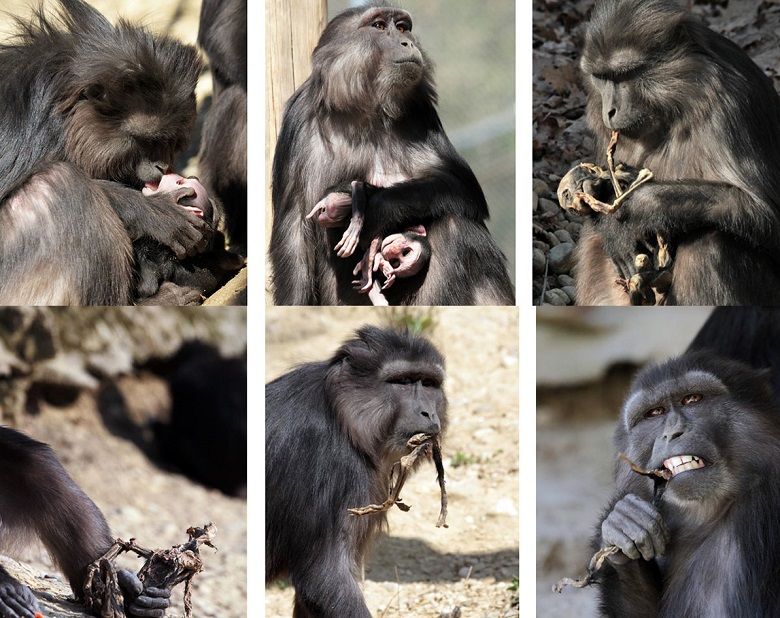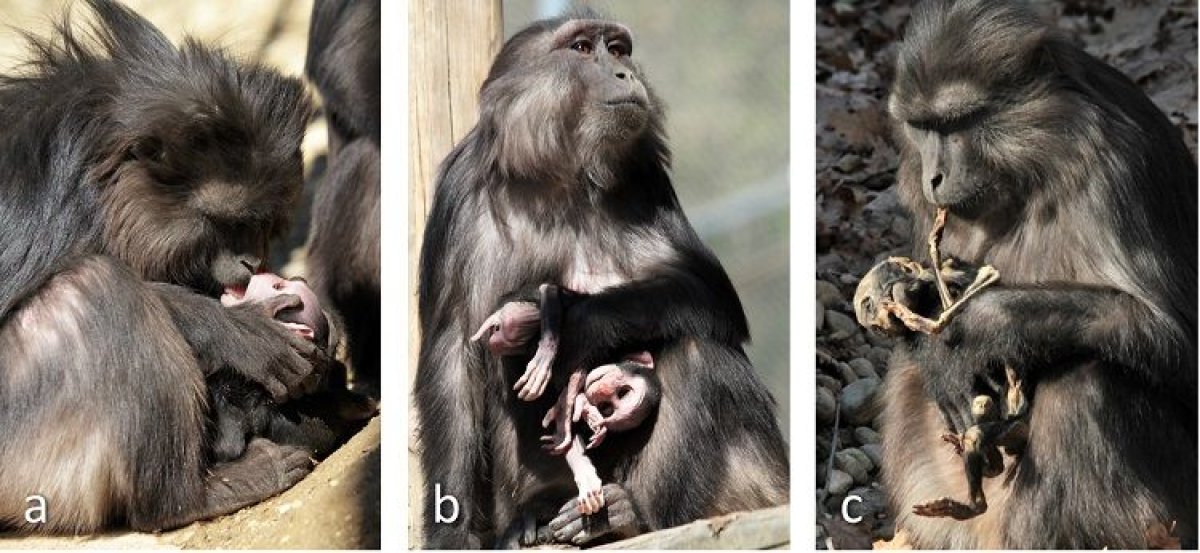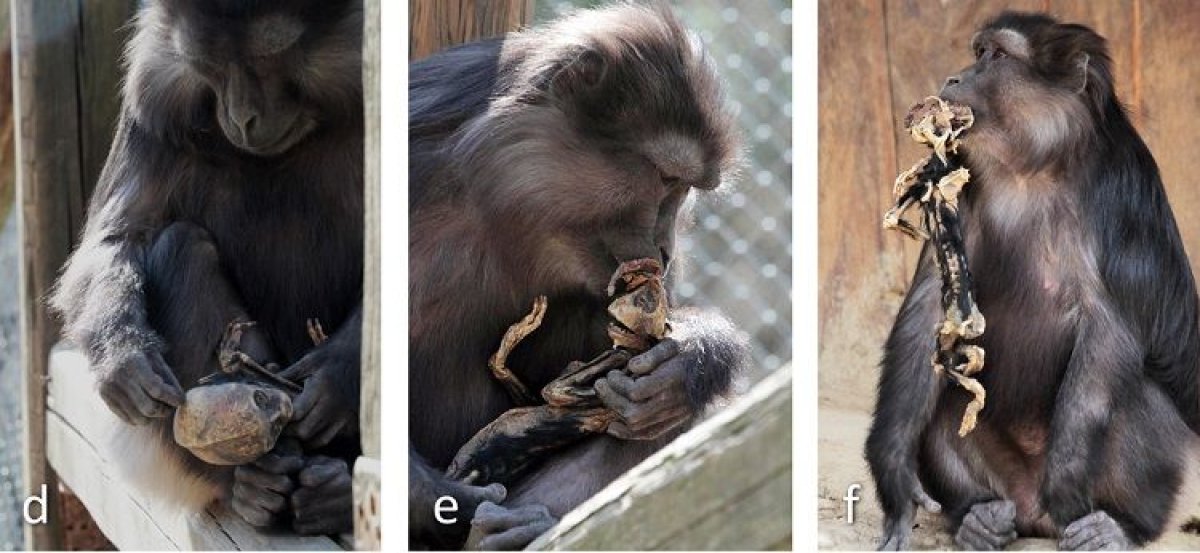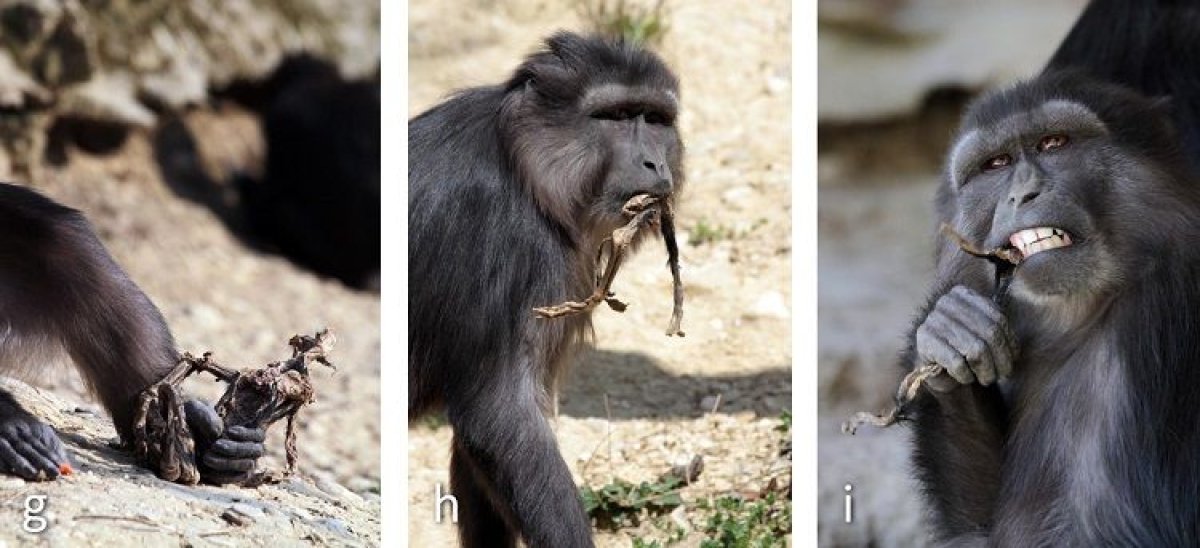
An episode of filial cannibalism observed in a normally vegetarian Tonkean macaque has baffled researchers who are trying to understand what motivated such behaviour.
A team of researchers observed the 4-year-old macaque, named Evalyne, in a wildlife park in Italy over a period of about four weeks following the birth of her baby.
Publishing their results in the peer-reviewed journal Primates, the researchers describe that by the end of a month in which the macaque hardly left the corpse and began chewing on its remains, all but one bone of the mummified infant had disappeared.
Evalyne was experiencing her first pregnancy, and the primates' first babies are often born dead or die after a few days. In Evalyne's case, the infant died on the fifth day after the birth, for reasons the researchers weren't able to assess.

The death affected Evalyne's behavior, which researchers describe as agitated and "repeatedly staring and screaming at her own image." The macaque continued to take care of the infant corpse, licking it and grooming it for the entire first week after the baby's death.
Evalyne continued caring for the corpse for another week, even as the body reached complete mummification on the eighth day following its death. The skull detached on the 14th day. She would carry the body in her hand or in her mouth, holding it against her belly when resting.
Researchers monitoring the macaque observed her detaching herself from the body only after 18 days. By comparison, most primates abandon their infant's corpses within the first week of their death.

Then, after 19 days, Evalyne was first observed "gnawing the dried flesh of the mummified corpse and eating small parts of it," as researchers described it. By the 25th day since the infant's death, all but one bone—likely an arm or a leg—had disappeared.
According to lead researcher Arianna De Marco, both the length of the attachment to the body and the cannibalism episode are remarkable features of the case, the first time such behavior has been observed in the Italian wildlife park and one of the few such cases of filial cannibalism documented in academic literature—another such case was observed in Japanese macaques.
De Marco tells Newsweek that in other cases they have observed in the wildlife park, reactions to the infant corpses varied from curiosity to disgust, especially when the corpse begins to putrefy. Evalyne was the first among the macaques group to tend to an infant's' corpse, so she could not have mimicked previous behaviors.
"We don't know why she would behave this way. The change in behavior from extreme attachment to cannibalism is astonishing. There may be physiological reasons, it could also be interpreted as an extreme attachment to the corpse's remains, but we still don't know," she says.

Other experts who study Tonkean macaque behavior agree this is an exceptional case. "What is particularly surprising is that Evalyne kept the dead body of her baby for almost one month, which is extraordinarily long and that she ate some body parts at the end," Dr. Charlotte Canteloup of the Anthropological Institute and Museum of the University of Zürich, tells Newsweek.
According to Canteloup, Evalyne's behavior may be influenced by her social status in the group or the relationships she had with other group members, whom researchers describe as being largely uninterested in the infant corpse.
"If it is a low-ranking female, we could hypothesize that she acted this way due to stress, but that doesn't explain why she waited so long before (eating) the body. We could also hypothesize that she exhibited this cannibalism behavior for nutritional gain, but this latter hypothesis is less plausible since the body was highly mummified," she says, adding: "It is delicate to claim other hypotheses. This behavior brings more questions than answers."
Uncommon Knowledge
Newsweek is committed to challenging conventional wisdom and finding connections in the search for common ground.
Newsweek is committed to challenging conventional wisdom and finding connections in the search for common ground.
About the writer
Sofia Lotto Persio reports mainly on Asia and gender issues for Newsweek. She previously covered international affairs with a specific ... Read more
To read how Newsweek uses AI as a newsroom tool, Click here.








